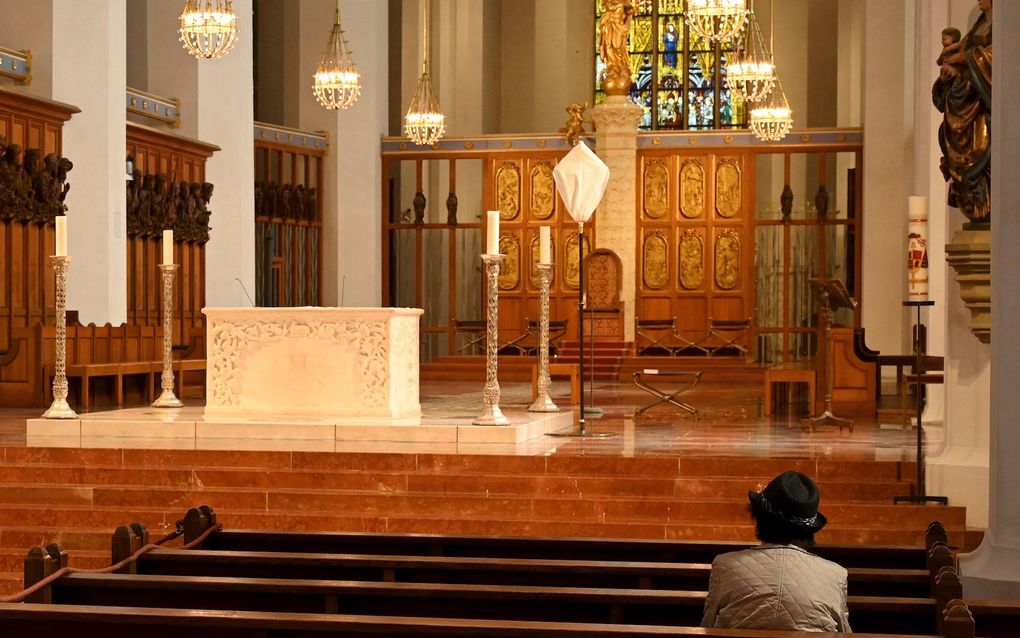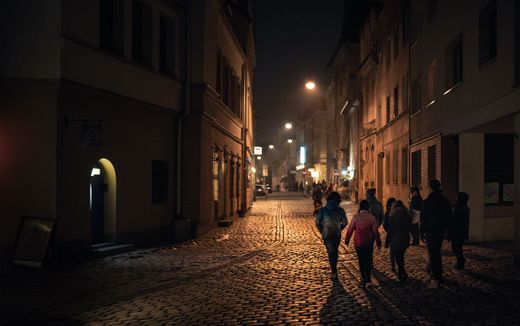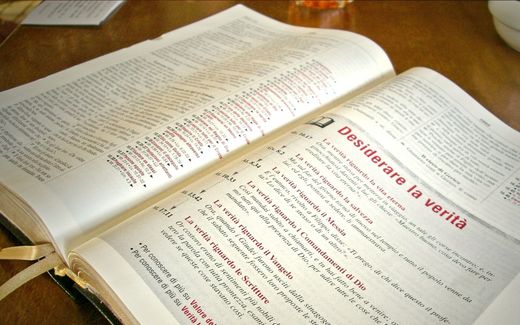Weekly column from Germany: When you suddenly belong to a minority
02-09-2022
Christian Life
Wolfgang Stock, CNE.news

Photo AFP, Christof Stache
Christian Life
When I was born six decades ago, West Germany was a Christian country. So Christian that people did not even think about it or talk about it - "Christianity" was taken for granted. Practically everyone belonged either to the Catholic Church, the Protestant state church of the federal state in which they lived, or to a free church - although they were few then.
The German constitution of 1949 begins with the words "In responsibility before God and man..." - and it was clear to everyone which God was meant by that.
Disturbing idea
This year, 2022, the Protestant and Catholic Christians in Germany have officially become a minority in terms of numbers. More than half of the Germans in the country, including the de-Christianised East Germany since 1990, are non-believers, Muslim or of another faith. The first group is the largest.

Wolfgang Stock was born in 1959 in Hanover, West Germany, as the child of refugees from the Eastern GDR. He studied history and international politics in Würzburg and Oxford, where he also received his doctorate. He is a board member of the German Evangelical Alliance. He worked as a journalist for many years, wrote several political books, including the first biography of Angela Merkel in 2000. He lives in Karlsruhe with his wife. They have five grown-up children and three grandchildren.
Although this development had been foreseeable for a long time, it is nevertheless a bothersome idea for me. Stop! That's how my thought starts. However, it's no longer a thought, I have to remind myself - it's reality: I am part of a minority in the country I always thought was mine.
State takes over the role of Christianity
To clarify, I am not an old white man with nationalist or racist ideals. My wife and I welcomed a child from Africa into our family 25 years ago, who God suddenly placed on our doorstep. Diversity is something we had practised in our family already before the term even existed.
And yet, I experience a profound break now. And we will realise its full implications will only slowly. For example, what will become of the Christian hospitals? In Germany, many hospitals are still run by churches or church institutions. However, they have, of course, long been financed by the state, and there are hardly any believing Christians among the staff. Will there be the same secularising development here, that the former Christian hospices will also officially become state institutions?
The same applies to old people's homes: there are still quite a few run by Christians, but no longer with formative Christian staff.
Christian schools
And kindergartens? In Germany, a large part of the kindergartens used to be organised by the churches. Still, unlike hospitals and old people's homes, the state only reimbursed part of their expenses. From the state's point of view, it was also a diaconal task of the churches to take care of small children.
This trend has already changed in recent years, with many independent providers being founded, either by parents or other organisations - and the churches are withdrawing from running kindergartens across the board because they say they can no longer and no longer want to bear the deficit.
In our country's schools, the churches have hardly played a role anyway - quite unlike in the Netherlands, for example. Church schools barely exist in Germany.
Christianity disappears from daily life
Thus, the trend of de-Christianisation will intensify more and more: not only are Christians numerically in the minority, but in addition, formerly Christian institutions will also be officially secularised at an increased pace, and thus Christianity will disappear even more from people's daily life.
The situation is different only at free Christian schools, which were founded and continue to be supported by committed parents. There are comparatively few of them, but their number and the number of their pupils are steadily increasing. The German constitution, still shaped by the "Christian" past, gives these free Christian schools great freedom, which they use in the sense of committed Christianity in school education.
Easy Christianity is nowhere promised
What does it mean for me to be part of a spiritual minority now? I think it is essential to realise that we as Christians are not promised in the Bible that we will be the majority or that it is easy to confess Jesus. If we look at the Acts of the Apostles, for example, we see precisely the opposite - constant persecution, arrests and danger of death characterised the everyday life of the apostles!
Yes, it will no longer be as easy to be a Christian; it will require more and more courage to confess - but I believe that this is exactly what Jesus expects of us - also and especially in Germany.
Related Articles





